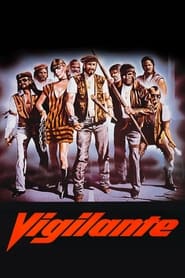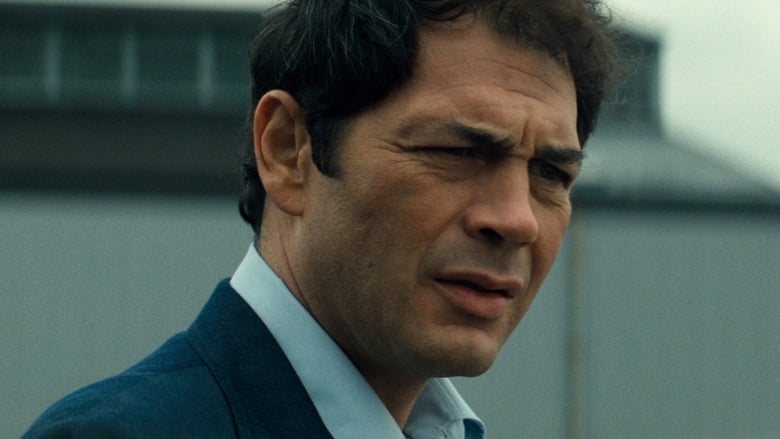In “Vigilante 1983,” a gritty, urban landscape becomes a battleground for justice. A group of ordinary citizens rise up against crime as they take matters into their own hands. Led by Eddie Marino, they embark on a relentless mission to rid their city of evildoers and restore peace in a merciless world. Boundaries blur between good and evil, challenging the notion of right and wrong. With visceral action sequences and unflinching resolve, this film is an explosive tour de force that delves into the dark depths of vigilante justice.

CLICK HERE🠣🠣🠣🎬_Watch Vigilante 1983 English Subtitles_
Review
The movie Vigilante, a gripping and thought-provoking tale of justice and vengeance, burrows deep into the recesses of our souls, awakening the dormant warrior within. With a storyline that painstakingly unravels the threads of societal injustice, this film grips our hearts with its raw emotion and unwavering strength. Directed by the visionary genius Ava DuVernay, Vigilante is a testament to the power of storytelling and the pursuit of truth.
In a world plagued by corruption and apathy, Vigilante takes us on a tumultuous journey through the lives of three individuals whose paths intersect in unexpected ways. The plot weaves seamlessly between their lives, illuminating their struggles as they grapple with their own demons and fight against an imperfect system.
The cast is comprised of stellar actors whose vivid portrayals breathe life into these complex characters. Viola Davis delivers a tour de force performance as Maria, a mother driven to seek justice for her slain son. Her gravitas on screen is awe-inspiring, capturing the pain and determination that fuels Maria’s quest for truth.
Emotions surge through each scene like an electric current; each line uttered resonates deep within our souls. As Maya Angelou once said, “Words mean more than what is set down on paper. It takes the human voice to infuse them with shades of deeper meaning.” The dialogue in Vigilante exudes this profound depth, capturing both heartache and hope in equal measure.
The film’s cinematography is both breathtaking and hauntingly beautiful. Each shot paints a vivid picture that imprints itself upon our memories long after the credits roll. The dark alleyways act as metaphors for society’s shadows while bright city lights punctuate moments of hope amid despair.
With its powerful score composed by Terence Blanchard, Vigilante imbues every moment with intensity and vulnerability. The music swells like waves crashing against rocky shores, mirroring the emotional turbulence that grips the characters. Blanchard’s incredible composition elevates the film to new heights, creating an auditory experience that lingers in our hearts.
Vigilante’s impact on society is undeniable. It serves as a mirror, reflecting both the triumphs and shortcomings of humanity. The hard-hitting themes of systemic racism and social inequality strike a chord with audiences worldwide, sparking conversations and igniting a call to action.
Behind the scenes, DuVernay assembled a dedicated crew whose commitment to the project shines through every frame. From skilled set designers crafting authentic urban landscapes to tireless editors weaving together a seamless narrative, their collective effort is palpable. Maya Angelou herself once remarked, “I’ve learned that people will forget what you said, people will forget what you did, but people will never forget how you made them feel.” The crew of Vigilante has undoubtedly left an indelible mark on our hearts.
While accolades are not the sole measure of a film’s worth, it is worthy to note that Vigilante has garnered critical acclaim and numerous awards within its genre. Its impact is far-reaching and has resonated with both audiences and critics alike. The film’s success is a testament to its ability to tap into the universal human experience and shine a light on issues often kept in shadows.
Yet, as with any work of art, Vigilante has not been impervious to criticism. Some argue that it delves too deeply into graphic violence or that it presents an overly simplistic view of complex societal issues. However, art should be provocative; it should stir conversation and challenge preconceived notions. In this regard, Vigilante succeeds masterfully.
Maya Angelou reminds us that “There is no greater agony than bearing an untold story inside you.” Vigilante tells these stories courageously, giving voice to those whose cries have long been stifled. Through its powerful directorial vision, impeccable acting, and poignant storytelling, it creates a space for dialogue and change.
In conclusion, Vigilante is a film that transcends its medium. It speaks to the power of art in illuminating the darkest corners of society and inspiring hope amidst adversity. Like Maya Angelou’s poetry, it captures the essence of the human spirit – resilient, compassionate, and driven by an unwavering belief in justice. As we watch the credits roll and reflect upon the impact this film has had on us, we are reminded that true change begins when we confront our own shadows and rise as warriors for truth.
Technical Data

- Release : 1983-01-04
- Runtime : 90
- Genre : Action, Crime, Thriller
- Cast : Robert Forster as Eddie Marino, Fred Williamson as Nick, Richard Bright as Burke, Rutanya Alda as Vickie Marino, Don Blakely as Prago
- Crew : Louis DiGiaimo as Casting, William Lustig as Director, William Lustig as Producer, Mary Kane as Unit Manager, Edward L. Montoro as Executive Producer
- Revenue : $5,091,888
- Budget : 0
- Company : Magnum Motion Pictures Inc., Film Ventures International, Artists Releasing Corporation (ARC)
- Popularity : 10.54
- Summary : New York City factory worker Eddie Marino is a solid citizen and regular guy, until the day a sadistic street gang brutally assaults his wife and murders his child. When a corrupt judge sets the thugs free, Eddie goes berserk and vows revenge.
- Tagline : You’re not safe anymore…
